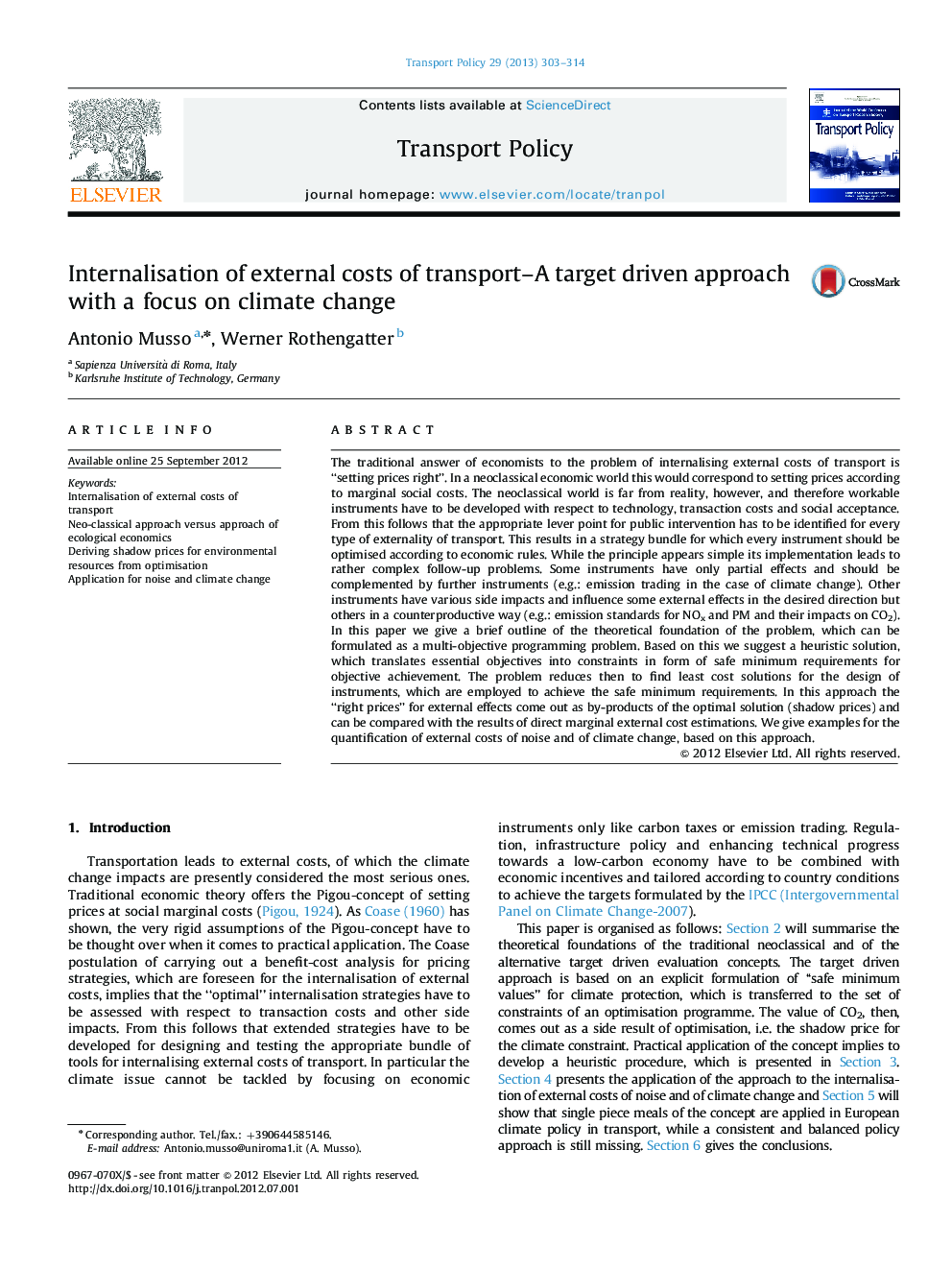| Article ID | Journal | Published Year | Pages | File Type |
|---|---|---|---|---|
| 1064968 | Transport Policy | 2013 | 12 Pages |
The traditional answer of economists to the problem of internalising external costs of transport is “setting prices right”. In a neoclassical economic world this would correspond to setting prices according to marginal social costs. The neoclassical world is far from reality, however, and therefore workable instruments have to be developed with respect to technology, transaction costs and social acceptance. From this follows that the appropriate lever point for public intervention has to be identified for every type of externality of transport. This results in a strategy bundle for which every instrument should be optimised according to economic rules. While the principle appears simple its implementation leads to rather complex follow-up problems. Some instruments have only partial effects and should be complemented by further instruments (e.g.: emission trading in the case of climate change). Other instruments have various side impacts and influence some external effects in the desired direction but others in a counterproductive way (e.g.: emission standards for NOx and PM and their impacts on CO2). In this paper we give a brief outline of the theoretical foundation of the problem, which can be formulated as a multi-objective programming problem. Based on this we suggest a heuristic solution, which translates essential objectives into constraints in form of safe minimum requirements for objective achievement. The problem reduces then to find least cost solutions for the design of instruments, which are employed to achieve the safe minimum requirements. In this approach the “right prices” for external effects come out as by-products of the optimal solution (shadow prices) and can be compared with the results of direct marginal external cost estimations. We give examples for the quantification of external costs of noise and of climate change, based on this approach.
